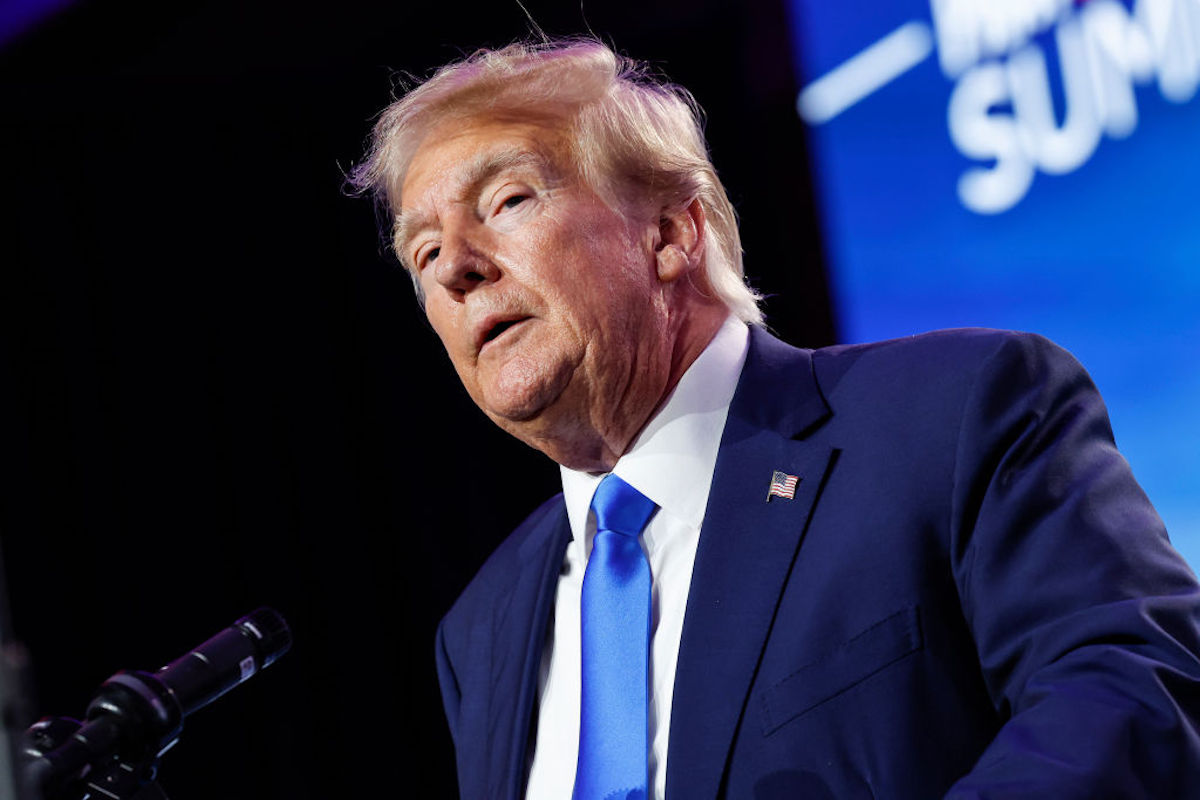There’s a Pretty Huge Asterisk on Colorado’s Decision Barring Trump From the Primary Ballot

On Tuesday, December 20, 2023, the Colorado Supreme Court decided to give all of us an early holiday present and ruled that Donald Trump is, in fact, disqualified from appearing on the state’s election ballots in 2024.
Last month, Judge Sarah B. Wallace offered a slightly confusing decision, stating Trump had engaged in insurrection (after Trump’s lawyers tried to argue that inciting an insurrection is not the same as engaging in one) but ruled that he would be allowed to stay on the 2024 ballot for nitpicky semantics reasons.
The plaintiffs who brought the case were a small group of Republican and undeclared voters, represented in part by Citizens for Responsibility and Ethics in Washington, a political watchdog group. They immediately appealed Judge Wallace’s ruling, which led to the Supreme Court reversing the decision, saying section 3 of the 14th Amendment of the U.S. Constitution very clearly states that an elected official who has taken an oath to support the Constitution cannot engage in insurrection and then return to office. Which is exactly what Trump is trying to do!
(Hilariously, Trump also filed an appeal to Wallace’s ruling, despite it being largely in his favor. He is now, predictably, throwing a fit over the outcome.)
The district court erred by concluding that Section Three does not apply to the President. We therefore reverse the district court’s judgment. As stated above, however, we affirm much of the district court’s reasoning on other issues. Accordingly, we conclude that because President Trump is disqualified from holding the office of President under Section Three, it would be a wrongful act under the Election Code for the Secretary to list President Trump as a candidate on the presidential primary ballot. Therefore, the Secretary may not list President Trump’s name on the 2024 presidential primary ballot, nor may she count any write-in votes cast for him
Interestingly, the ruling specifically applies to the Republican primary ballot and doesn’t address the general election at all.
An important caveat
There’s a pretty big asterisk attached to this ruling that I don’t like one bit. In order “to maintain the status quo,” the court also issued a stay (like a hold on legal action) in its own ruling until January 4, 2024—the day before the Secretary of State has to certify the names listed on the presidential primary ballot. If the U.S. Supreme Court agrees (or possibly even only if it’s asked, the wording is fuzzy) to review the case, the stay will remain in place and the Secretary of State will have to include Trump’s name on the primary ballot.
And this case will almost certainly be taken up the the U.S. Supreme Court. The New York Times writes:
“It’s hard for me to see how they don’t take this one, because this certainly seems to be one of those questions that requires some national resolution,” said Anthony Michael Kreis, an assistant professor of law at Georgia State University who has closely followed the Colorado case and related lawsuits around the country.
But the Supreme Court’s expected involvement also complicates things, especially with a stay in place. That court is not known for swiftness, it tends to take a very long time with its process and decisions. Post-civil war era historian Eric Foner told The Guardian, “It would be weird if Trump is elected next fall, then a year into his term of office he’s evicted because he doesn’t meet the qualifications.”
Foner adds: “We saw how Trump reacted to actually losing an election. But now, if he won and then was kicked out of office, that would certainly be a red flag in front of a bull.”
So with that extended timeline and the Colorado court’s stay it seems likely that Trump’s name would actually appear on the primary ballot, no matter the recent ruling.
If he is kept off the ballot, that could be interesting, though. Trump is dominating his Republican opponents in all polls to the extent that losing one state likely wouldn’t be enough to cost him the whole race. But remember, the country’s primary races are staggered and Colorado’s election takes place very early in the process, on March 5.
This could mean that the other Republican candidates have a chance for at least one of them to finally be seen as a genuine contender. Those early caucuses and elections do so much to craft the public perception of who is and isn’t “electable.” Like it or not, voters in states that go to the polls later do tend to those those earlier results color their decisions. It’s exactly what happened with Joe Biden, deemed the most “electable” candidate, in 2020. If Trump’s opponents are given a real shot at winning just one state, could that have an impact on the rest of the race? It doesn’t seem out of the question.
(featured image: Anna Moneymaker/Getty Images)
Have a tip we should know? tips@themarysue.com